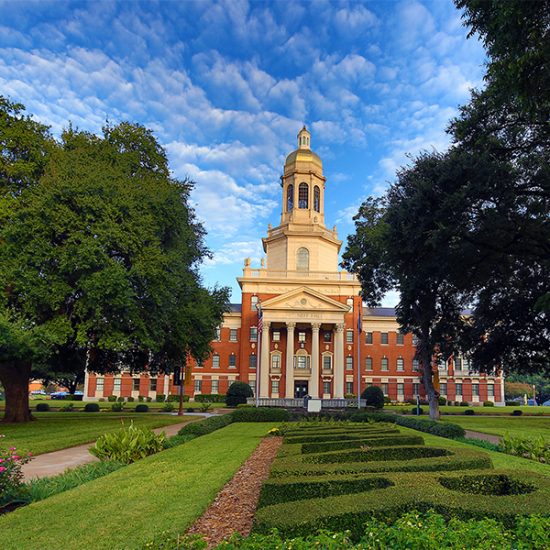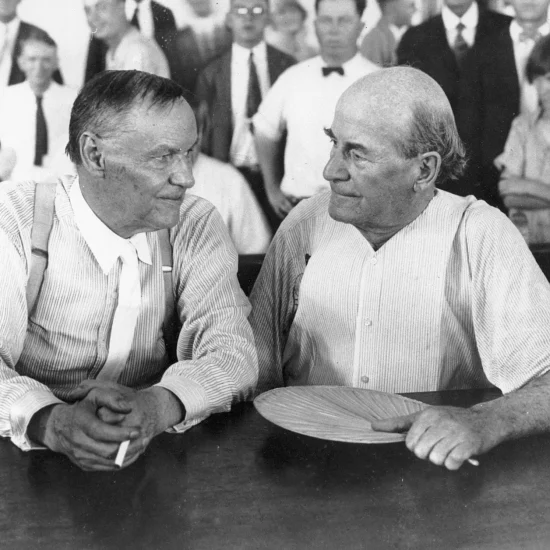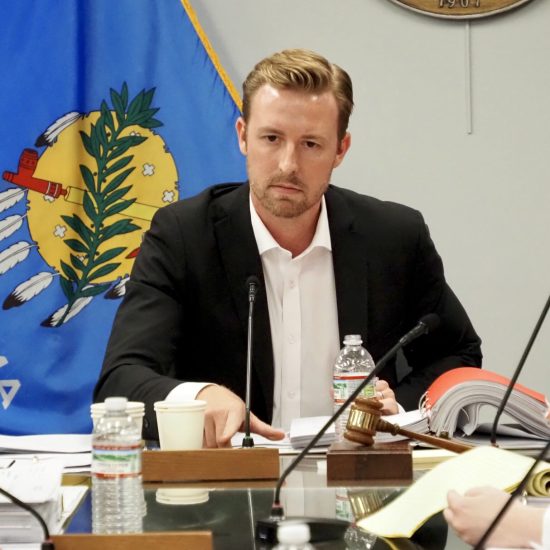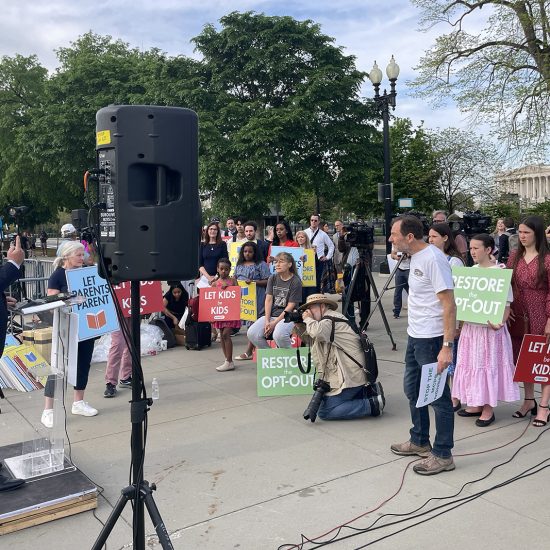
The Bible should not be taught in public schools.
That bit of common sense has become controversial in recent years. A coalition of Christian Nationalist organizations, organized initially under the banner of “Project Blitz,” seeks to alter the longstanding American consensus that church and state should be separated. One strategy for accomplishing this is through model legislation for state lawmakers that encourages school districts to teach courses about the Bible.
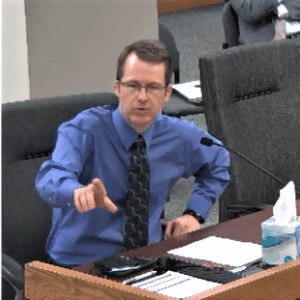
Screengrab of Brian Kaylor testifying in the Missouri House Elementary & Secondary Education Committee on May 3, 2021.
Like several other states in the past few years, the Missouri legislature is close to adopting this bill, known as SB 323. As a Baptist minister and committed Christian, I recently testified against its passage. This legislation is a danger to our democracy and profanes the scriptures that my faith believes are sacred.
Too few people today grasp the value of separating church and state. The power and influence of the government inevitably corrupt the church. As the Christian scholar and author Tony Campolo is fond of saying, “Mixing the church and state is like mixing ice cream with cow manure. It may not do much to the manure, but it sure messes up the ice cream.”
Ostensibly, the Project Blitz model legislation being considered in Missouri and other places is about teaching the historical and literary impact of the Bible on our culture and society. There is nothing unconstitutional or problematic about this intention on its face, which is why schools can already do it. But there are reasons to be deeply suspicious about the motives behind such legislative efforts.
The organizations pushing these bills have been clear about their goals of creating a supposedly “Christian nation” that codifies a very narrow and extreme version of their faith into law. When WallBuilders (a Project Blitz member) sets out goals on its own website of “educating the nation about the Godly foundation of our country” and “providing information to federal, state, and local officials as they develop public policies which reflect Biblical values,” it is hard to believe the assertions being made about the legislation’s neutral stance and educational purposes.

(Michal Matlon/Unsplash)
Here we discover a wolf wearing sheep’s clothing. Those claiming to follow Jesus are not being honest about what motivates their advocacy. They want the Bible taught not because of its “historical” value but precisely because they believe its spiritual claims.
Similar problems begin to arise when considering what would happen if the bill was enacted into law. Let me provide three quick examples:
First, the legislation singles out the Bible as the sole sacred text worthy of study in public school classrooms. Are there no other religious writings of significant historical and literary influence? A course surveying the impact that a variety of religious texts have had on our culture and society would make far more sense, given the stated purposes of the legislation. To single out the Bible as the only one worthy of study seems designed to sneak Christian teaching into public school classrooms. This looks more like evangelism than education.
Second, you have to determine what Bible will be taught. The legislation in Missouri says “no requirement shall be made by the district on the text translation students must use.” But those pushing the bill don’t seem to understand that the very concept of the Bible remains contested. One teacher could not possibly teach a course on “the Bible” to students who are simultaneously reading from the Jewish Tanakh (that doesn’t include any of the New Testament), the 66 books in most Protestant Bibles, the 73 books considered authoritative by the Roman Catholic Church, or the 80 books included in the Orthodox Church of America’s Bible.
If a teacher picks one list of books as “the Bible,” the state will be choosing winners and losers when it comes to religion and faith. But to teach them all as books of the Bible is to undermine the faith teachings of parents and churches that pick a particular list for profoundly religious reasons. Either the supporters of this bill have not considered this problem or they are making an assumption that their preferred version of the Bible is most likely to be used — as seen by the fact that the bill only uses explicitly Christian language to describe the Hebrew scriptures. The result will be alienated students, offended parents, and a violation of constitutional principles.
Third, we cannot separate the historical and literary elements of the Bible from its supernatural claims. The resurrection of Jesus features heavily in our cultural imagery because of its widespread belief among Christians. How can a course talk about the Bible’s impact without talking about the resurrection? If taught as a supernatural act, that would be unconstitutional. But equally problematic would be to undermine the historicity of the resurrection. I can already imagine the outrage and the headlines that will emerge when the views of the teacher come into conflict with the convictions of students and parents.
Here is the heart of the issue: The Bible cannot be reduced to an elective social studies class. Yes, this collection of religious texts has impacted literature, politics, history, culture, and so much more. But the reason for its influence is due to people’s belief in what the Bible reveals. This is not Moby Dick or A Tale of Two Cities. The Bible is not influential because it is great literature but because so many people believe it is the word of God.
That is certainly my belief. The Bible is the foundational text of my faith. It is how I learn about God. It teaches me what it means to follow God’s commands and worship God. This book is inherently religious and pretending otherwise is foolish. Stripping away its sacredness under the pretext of treating this book as just good literature is to profane the Bible.
I need the state to teach my son reading, writing, and arithmetic. It would be nice if they could also cover basic computer science, critical reasoning, and a few vocational skills. I neither want nor trust the government to educate him about the Bible. That’s the job of our church and his family.
Frankly, this truth is so obvious — legally, practically, religiously — that we should not need this debate. But until the dangerous idol of Christian Nationalism is destroyed, we will continue to see misguided efforts that undermine the witness of the church in order to worship the government.
Brian Kaylor is president & editor-in-chief of Word&Way. Follow him on Twitter: @BrianKaylor.

